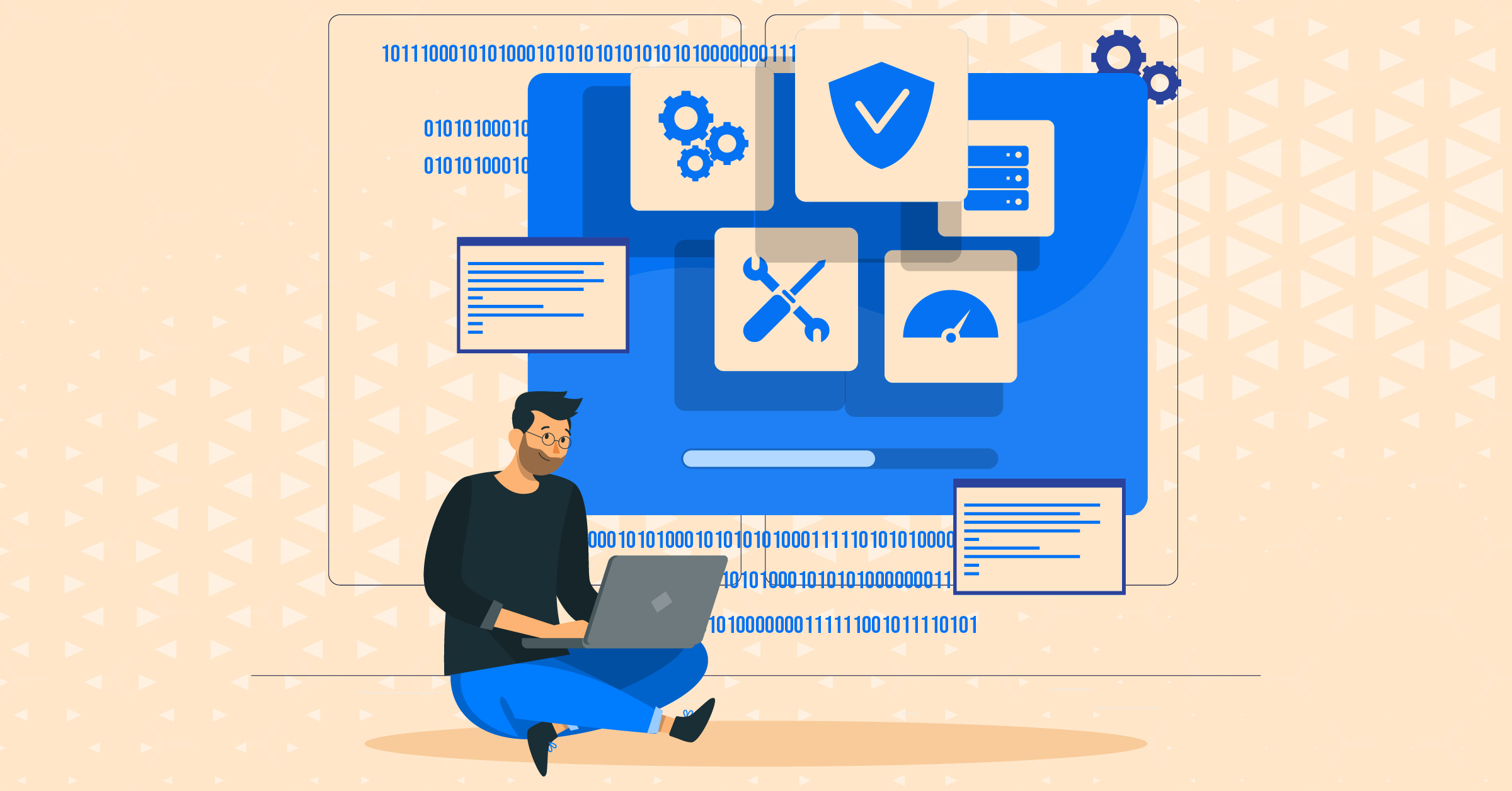One of the key considerations in software development is ensuring software compliance. Compliance refers to adhering to regulatory standards, laws, and guidelines that govern the software industry. It is crucial for software developers to comply with these regulations to maintain the integrity and security of their products.
Ensuring software compliance is important for several reasons. First and foremost, compliance helps protect end-users from potential risks and vulnerabilities. By following industry standards and regulations, developers can mitigate the chances of their software being prone to security breaches or data leaks.
Additionally, compliance ensures that software is developed in a manner that respects user privacy and protects sensitive information. This is particularly important in industries where user data is highly regulated, such as healthcare or financial sectors.
Understanding the Role of Software Validation
Software validation plays a crucial role in the development process, ensuring that software meets the necessary requirements and performs as intended. It is a systematic and rigorous approach that involves testing and evaluating the software against predefined standards and specifications. The goal of software validation is to provide confidence in the quality, reliability, and functionality of the software before it is deployed to end-users.
The role of software validation is multi-fold. Firstly, it helps to identify and rectify any errors or defects in the software early in the development cycle, reducing the likelihood of costly rework and potential issues down the line. By thoroughly testing the software, validation helps to ensure that it meets all functional requirements and performs as expected in different environments and scenarios.
Moreover, software validation also plays a crucial role in regulatory compliance, especially in industries such as healthcare and finance, where adherence to specific standards and regulations is of utmost importance. In such cases, validation ensures that the software meets all the necessary regulatory requirements, providing a level of assurance to both the developer and the end-users.
Identifying Common Compliance Challenges in Software Development
Software development is a crucial aspect of modern businesses, but it comes with its fair share of compliance challenges. One common challenge is ensuring that the software meets all the necessary regulations and industry standards. This includes adhering to international data protection laws, such as the General Data Protection Regulation (GDPR), which safeguards the privacy and security of personal data. Failure to comply with these regulations can lead to severe legal and financial consequences for organizations.
Another common compliance challenge in software development is keeping up with evolving technological standards. As technology advances at a rapid pace, new regulations and industry standards are introduced regularly. Staying informed and up-to-date with these changes can be a daunting task for software developers.
In addition, different industries may have specific compliance requirements, such as healthcare regulations for medical software or financial regulations for banking and finance applications. Meeting these industry-specific compliance standards adds another layer of complexity to the software development process.
Key Considerations for Selecting Software Validation Services
When it comes to selecting software validation services, there are several key considerations that need to be taken into account. Firstly, it is important to ensure that the service provider has a strong track record in the field of software validation.
Look for a company that has extensive experience in validating software in your specific industry, as this will ensure that they have the necessary expertise and understanding of the regulatory requirements that need to be met.
Secondly, it is crucial to evaluate the range of services offered by the software validation provider. A comprehensive validation process should cover a wide range of aspects, including functionality testing, performance testing, and security testing. Make sure that the service provider can tailor their validation services to meet the specific needs of your software project, and that they can provide support throughout the entire validation process.
By carefully considering these key factors, you can ensure that you select a software validation service provider that not only meets your regulatory requirements but also delivers high-quality validation services to ensure the reliability and performance of your software.
The Process of Software Validation: Steps and Best Practices
Software validation is a crucial process that ensures the integrity and functionality of software applications. It involves a series of steps and adhering to best practices to guarantee that the software meets the necessary requirements and performs as intended. The first step in the process involves defining the objectives and scope of the validation effort. This includes identifying the specific regulatory requirements, user needs, and functional specifications that the software must meet.
Additionally, it is important to establish a validation plan that outlines the activities, resources, and timelines for each step of the validation process.
Once the objectives and scope are defined, the next step is to develop the validation protocols. These protocols serve as the blueprint for the validation activities and provide detailed instructions on how to conduct the tests and evaluate the results. Common validation protocols include installation qualification (IQ), operational qualification (OQ), and performance qualification (PQ) tests.
Throughout the validation process, it is important to document and maintain detailed records of all the activities, test results, and any deviations or issues encountered. This documentation serves as evidence of compliance and enables traceability if any issues arise in the future. By following these steps and best practices, organizations can ensure the thorough and effective validation of their software applications.
• Define the objectives and scope of the validation effort
• Identify specific regulatory requirements, user needs, and functional specifications
• Establish a validation plan outlining activities, resources, and timelines
• Develop validation protocols such as IQ, OQ, and PQ tests
• Document and maintain detailed records of all activities and test results
• Address any deviations or issues encountered during the process
• Ensure compliance with regulations and standards
Ensuring Regulatory Compliance in Software Development
In the field of software development, regulatory compliance plays a crucial role in ensuring that software products meet the necessary quality standards and legal requirements. As technology continues to advance, governments and regulatory bodies have implemented strict guidelines and regulations to protect consumer rights, maintain data privacy, and ensure the overall safety and reliability of software applications.
One of the key challenges in ensuring regulatory compliance in software development is the constantly evolving landscape of regulations. Laws and regulations pertaining to software quality and security can vary across different industries and countries.
Therefore, developers need to stay up to date with the latest regulatory changes and adapt their development processes accordingly. This requires a deep understanding of the specific compliance requirements relevant to their software applications and the expertise to implement the necessary measures to meet those requirements. Without proper compliance, companies may face legal penalties, damage to their reputation, and potential loss of business.
Therefore, collaborating with professional software validation services can greatly assist in navigating the complex world of regulatory compliance and ensuring that software products adhere to the necessary standards.
Benefits of Utilizing Professional Software Validation Services
Professional software validation services provide numerous benefits for businesses in various industries. First and foremost, these services ensure that the software development process meets all regulatory requirements and standards. This is crucial in industries such as healthcare, finance, and manufacturing where non-compliance can lead to severe consequences, including legal penalties and reputational damage.
Professional software validation services also help businesses navigate the complex landscape of regulatory guidelines, ensuring that their software solutions are up-to-date and compliant with industry-specific regulations.
In addition to regulatory compliance, utilizing professional software validation services can enhance the overall quality and reliability of software products. These services typically include comprehensive testing and validation processes, which help in identifying any glitches or errors in the software. By detecting and resolving issues early on, businesses can prevent costly rework and minimize the risk of software failures or malfunctions.
Moreover, professional validation services ensure that the software is thoroughly tested against a wide range of scenarios and use cases, guaranteeing its functionality, usability, and performance. This ultimately leads to improved customer satisfaction and loyalty, as businesses can provide reliable and user-friendly software solutions to their clients.
FAQ
What is software validation?
Software validation is the process of ensuring that a software product meets the specified requirements and performs its intended functions correctly.
Why is software compliance important?
Software compliance is important to ensure that software products meet regulatory and industry standards, protect user data, and adhere to legal requirements.
What are common compliance challenges in software development?
Common compliance challenges in software development include meeting regulatory requirements, ensuring data privacy and security, managing software updates and patches, and maintaining documentation.
How can professional software validation services help in software development?
Professional software validation services can provide expertise and guidance in ensuring compliance, conducting thorough testing, identifying and resolving software issues, and providing documentation for regulatory purposes.
What are the key considerations for selecting software validation services?
Key considerations for selecting software validation services include expertise in relevant regulations, industry experience, a proven track record, a comprehensive validation process, and the ability to provide ongoing support.
What is the process of software validation?
The process of software validation typically involves planning, conducting a risk assessment, developing test protocols, executing tests, analyzing results, and documenting the validation process.
How can software validation services help ensure regulatory compliance?
Software validation services can help ensure regulatory compliance by conducting thorough testing, documenting the validation process, identifying and resolving compliance issues, and providing evidence of compliance to regulatory authorities.
What are the benefits of utilizing professional software validation services?
The benefits of utilizing professional software validation services include ensuring compliance with regulations, reducing the risk of software failures or errors, improving software quality, enhancing user satisfaction, and saving time and resources in the long run.
READ ALSO:- Get Complete Knowledge On Online Share Trading






